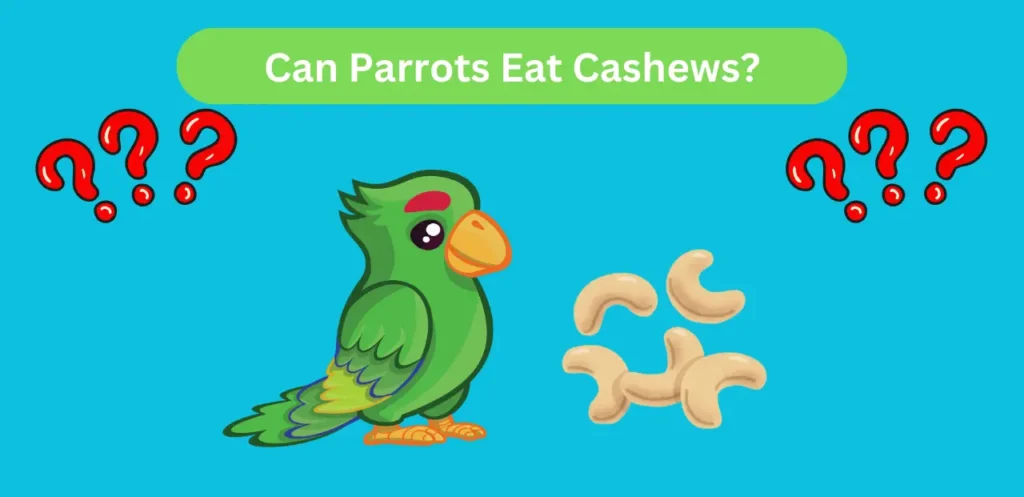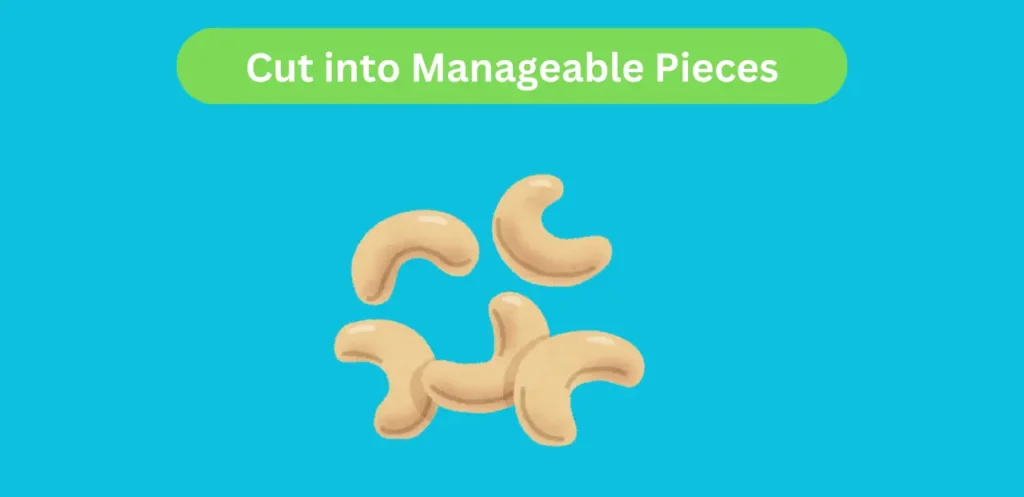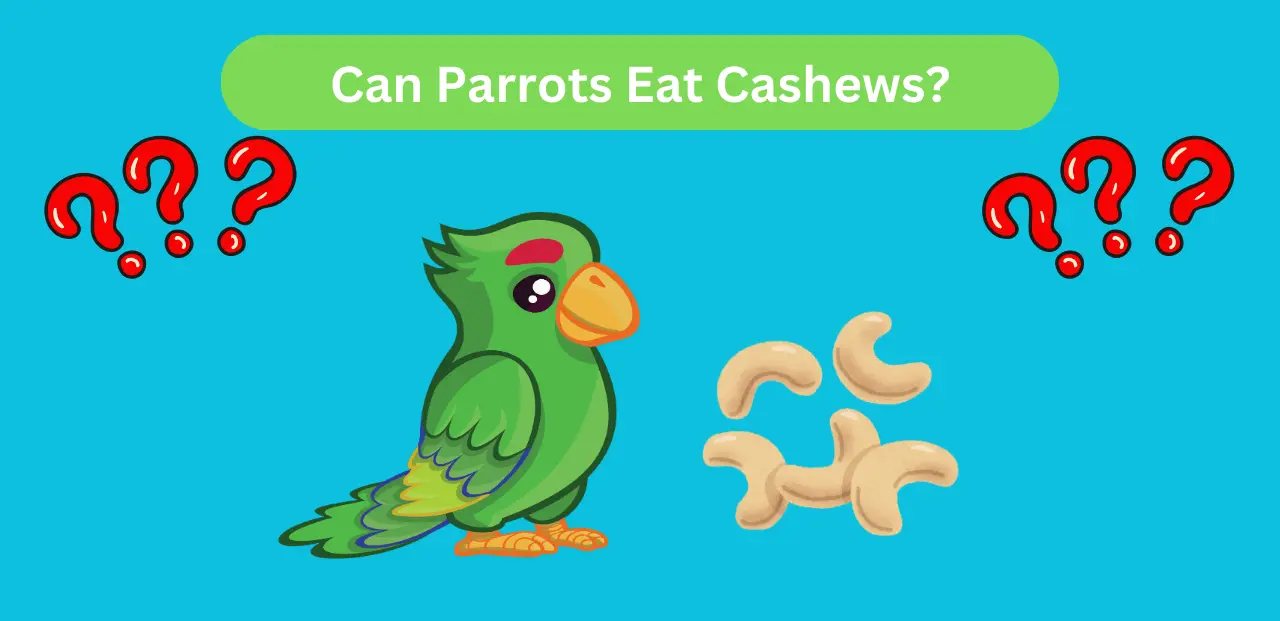It is impossible to stay indifferent to parrots; these colorful, smart birds are loved by many people. Their diet is fundamental to their wellbeing more so in relation to energy, quality of feathers, and life expectancy. Just like any good owners, we sometimes ponder regarding the possibility of feeding our birds the same things we take. One such question is: can parrots eat cashews?

Nutritional Breakdown of Cashews for Parrots or Birds
Cashews are a tasty and healthy snack for conures. Cashews are rich in fats, mostly monounsaturated and polyunsaturated fats that are considered healthy. Some of these fats are vital in providing energy and making parrots have beautiful feathers as we see them. However, because of the high-fat content, they should only be fed in limited quantities, especially for parrots who are less active most of the time.
Like any nut, another component of cashews is protein which makes cashews contain important amino acids for supporting muscles and body functions in parrots. These are part of our human diets and needs, so one can imagine how important they are for birds, especially in tissue repair and growth, the immune system, and feather regrowth.
Cashews also contain some of the vitamins and minerals that are needed in the body including magnesium, phosphorus, and vitamin K. Vitamin K helps in the coagulation of the blood, a factor that is crucial for the growth of aging parrots because of the bone strength needed there.
This renders cashews another good source of antioxidants, although there are very few quantities of selenium and vitamin E. These compounds are effective in lowering inflammatory pressure and bolstering healing within the immune system; they keep your parrot happy and full of spirit.
However, they are calorie-dense and have very low fiber; hence, they may not fill the parrot’s stomach as other foods with high fiber, such as fruits or vegetables. However, because cashews are rich in fat, feed your parrot cashews in moderation and as a supplement to other foods.
Raw vs. Roasted Cashews for My Parrots
In deciding whether to offer the cashews raw or roasted you should find out how each affects its safety and nutritional value for the parrot. Sure, both raw and roasted cashews are useful for you and your parakeets but picking the one that contains more benefits and fewer muddy drawbacks is the key to your birdie’s healthy diet.
Raw Cashews
Raw cashews, as are offered for purchase in shops, have been processed to extract certain poisonous acids that exist in the shells of the nuts. Unprocessed, as they are harvested and if they are not shelled immediately, the true raw or green, or cashew apples are toxic to humans and parrots because of the urushiol they contain. Fortunately, the raw cashews one can buy at a shop or any store are not toxic due to their retention of their nutrient value.
Fresh cashews are not subjected to a lot of processing and lead to high amounts of healthy fats, vitamins, and minerals as compared to roasted cashews. This makes them a nutrient-dense snack for parrots or birds in general. Nonetheless, raw cashews may be more easily contaminated by mold or bacteria such as salmonella, and employing the services of a reputable dealer should be done.
Roasted Cashews
Cashews are roasted which means they have been heated up to increase their flavor and their shelf life. This process can act as a barrier towards bacterial intrusion hence making roasted cashews potent in some instances. However, roasting also lowers some nutrient content; a process that is most hazardous to heat-sensitive nutrients such as vitamin E.
The only issue with roasted cashews is that in commercially prepared roasted cashews, salt, oils, or seasonings may be added. Salt is poisonous to parrots and ought to be administered in small proportions, even though it can cause dehydration or problems with the kidneys. Solid melts that are edible include roasted cashews that should be unsalted with no additional oils or spices added.
Which Is Better for Your Pet?
Fresh and roasted cashews can be healthy for whoever loves the seeds when properly sourced and prepared for consumption. The raw cashews are the most nutritional, but they should be chemically free. Cashews that are roasted add an extra layer of protection against bacteria but ideally should be unsalted and free from oil. In any case, therefore moderation should be observed irrespective of which side of the divide one falls into.
How to Serve Cashwes to Your Lovely Friends?
In its proper preparation, cashews are good and healthy food for parrots to take. Nevertheless, there are certain standard procedures, which, if adhered to, will help these nuts to be of benefit to the bird without any harm. Here are some basic things to bear in mind when feeding your parrot cashews.

- Choose the Right Cashews: Choose raw and natural cashews without added salt. The additional salt, oils, or flavor added to processed nuts are toxic to parrots in one way or the other.
If you like cashews toasted, be sure these are toasted without the use of any ingredient other than heat. - Serve in Moderation: Cashew nuts are rich in fats and energy so these Should be taken in moderation. They’re popular and should be consumed occasionally some cashews a few times per week are usually plenty. It results in obesity or other health problems if the amount is beyond their requirement.
- Cut into Manageable Pieces: To somewhat increase the size of the food and reduce the chances of choking, the cashews should be opened up for the small parrots.
- Offer as a Training Treat: Cashews are perfect for use as a reward during training exercises. The foods are tasty and crunchy due to their richness in nuts thus they can help motivate the parrots.
However, to minimize the possibility of developing these diseases, cashews should be served with other food products such as fresh fruits, green veggies, grains, and other protein products. Dietary requirements are very important in any parrot’s life and are hugely responsible for the well-being of your pet.
If your parrot develops allergies or problems with digestion such as vomiting or diarrhea after the first time it is offered cashews, do not feed them to it again. In case you find your bird developing bad symptoms, stop giving her cashews and seek help from an avian veterinarian.
Conclusion
Cashews should not be dangerous for parrots when served properly and can be a healthy snack as well. Burdened with health benefits inclusive of healthy fats, protein, and nutrient density, they are best consumed in moderation. However, due to very high calories and fat content, they should not be taken daily as a snack. Choose strictly raw cashews, which have not been salted, seasoned, or flavored with oil. However, raw or roasted, cashews must always be part of the balanced diet, to keep your parrot fit and active. As has already been said, variation in the environment is a necessary factor for your parrot’s contentment.
FAQs About Can Parrots Eat Cashews
Can budgies have cashews?
Yes, but there are some things that you should know about feeding your parrot cashews. Cashews are a healthy nut that contains top amounts of essential fats, protein vitamins, and minerals, and should only be fed sparingly.
Can parrots eat cashew seeds?
Cashew seeds or the inner part of cashew nut are safe for parrots to consume, however, there is crucial information that every owner should be aware of. Cashew seeds are rich in nutrients but oil prepared from these seeds can prove poisonous to humans if not well processed or if the extraction is done to excess. Now let us look into the nutrition profile of cashew seeds and the necessary measures you should observe when feeding the parrot with cashew seeds.
Can birds eat salted cashews?
Birds should not consume salted cashews. That is why, even though plain and unsalted cashews do not pose a threat to many types of birds as for their nuts’ nutritious qualities, salted cashews do as they contain much sodium.
Related Posts
Can Parrots Eat Pistachio Nuts?

Abubakr is a passionate parrot enthusiast based in Pakistan. He shares his life with his vibrant parrot, Peto, and is dedicated to understanding parrot nutrition, behavior, and training. Through his experiences with Peto, Abubakr aims to gain a deeper insight into the needs and personalities of parrots and to share his knowledge with fellow parrot lovers. With a focus on the nutrition of conures, Abubakr is excited to connect with like-minded individuals and learn from their experiences.
